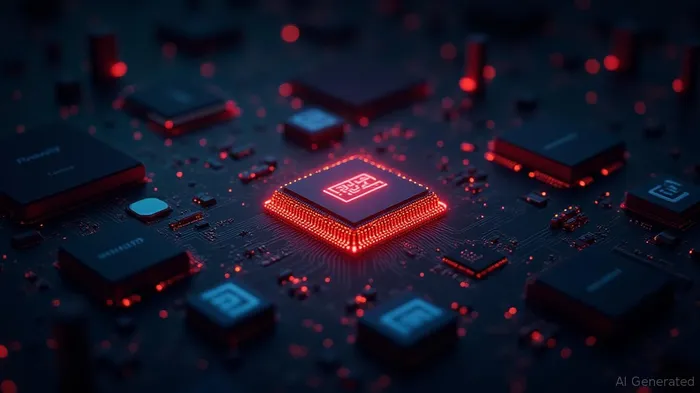AMD's AI Acquisitions Position It to Challenge NVIDIA
Advanced Micro Devices (AMD) is poised to become a major player in the AI chip market, according to analysts. The company's strategic acquisitions and technological advancements are positioning it to challenge industry leaders like NVIDIANVDA--. AMD's recent moves, including the acquisition of several AI-focused companies, demonstrate its commitment to enhancing its AI capabilities and expanding its market presence.
Analysts have noted that the increasing demand for AI model inference is driving the large-scale deployment of GPUs, particularly from 2026 to 2028. This trend is expected to benefit AMDAMD--, as cloud service providers and national projects may increasingly adopt AMD's platforms for their AI needs. The company's recent upgrades in its AI capabilities, including the acquisition of Untether AI, Brium, and Enosemi, are seen as strategic moves to bolster its position in the AI market.
Untether AI, acquired by AMD in June, specializes in near-memory computing architecture for AI inference chips. Its SpeedAI240 inference accelerator card has shown impressive performance in image classification benchmarks, with low power consumption and high efficiency. This acquisition is aimed at enhancing AMD's capabilities in data center and edge AI applications, where high-efficiency AI inference chips are in demand.
Brium, another AI software optimization company acquired by AMD, focuses on developing AI compilers that can translate complex AI models into efficient code for chips. This acquisition is expected to improve the execution efficiency of AMD's MI300 series GPUs in AI tasks and enhance its AI software stack, making it more competitive in the AI market.
Enosemi, a silicon photonics chip startup acquired by AMD, specializes in developing photonic integrated circuits (PIC) that enable high-speed data transmission within chips. This acquisition is aimed at addressing the interconnect bottleneck in AI computing, where traditional electronic connections struggle to meet the bandwidth and power efficiency requirements of large AI models.
AMD's series of acquisitions, including Xilinx, Pensando, Silo AI, Mipsology, and ZT Systems, have strengthened its capabilities in heterogeneous computing, network acceleration, and AI model training and inference. These moves are part of AMD's broader strategy to build a comprehensive AI technology stack that can compete with NVIDIA's offerings.
NVIDIA, a dominant player in the AI hardware market, has also been active in acquisitions. Its recent purchase of Lepton AI, a GPU rental company, and Gretel, a synthetic AI training data platform, are aimed at expanding its cloud and software services. These acquisitions are part of NVIDIA's strategy to transition from a hardware-focused company to a full-stack service provider, enhancing its competitiveness in the AI market.
High-speed data transmission and efficient AI inference are critical for the development of AI applications. AMD's acquisitions of Untether AI, Brium, and Enosemi are strategic moves to enhance its capabilities in these areas, positioning it to challenge NVIDIA's dominance in the AI hardware market. As the demand for AI continues to grow, AMD's investments in AI technology are expected to pay off, making it a formidable competitor in the AI chip market.

Stay ahead with the latest US stock market happenings.
Latest Articles
Stay ahead of the market.
Get curated U.S. market news, insights and key dates delivered to your inbox.

Comments
No comments yet